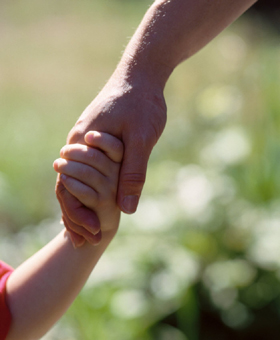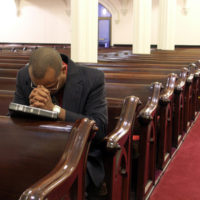
Sickness. Violence. Economy. Weather. Political divisions.
Tragedy is on the news every night and all throughout the day. We talk about it at the dinner table. And, as fun and engaging as it can be, we can thank social media for keeping us constantly informed of all the bad things happening in our world.
As I type this the Coronavirus is one of the leading news stories. Someone said fear is spreading faster than the virus.
And it doesn’t only impact us. It impacts our children.
Our children are not immune from fear. In an Information Age hey know what we know – filtered through their childlike mind.
Childhood can naturally be a scary time of life, but especially these days. We should never diminish a child’s fear or the impact the news of the day is having on them. It may even be totally irrational fear – something you know is completely impossible — but it’s very real to them.
How should a parent or teacher address a child’s fear?
Here are 7 thoughts to help children deal with fear:
Don’t assume their thoughts
Don’t assume just because your child doesn’t mention what has happened or is happening that they don’t know about it or care. Watch for unusual behavior. Be aware of mood changes or extreme sadness. Make sure they know it’s okay to talk about it. Assure them there is no shame or disappointment from you when they are fearful. Maybe tell them of a time you were afraid — even a recent time.
Limit their exposure
You’re curious, so the television may be on news stations more frequently. What are they covering right now? Remember children process information different from how you do. They may not appear to be watching, but they probably are more than you think. Fill their minds with things to encourage them not perpetuate the fear. Make sure there our times you turn off the television and simply play with your kids. They’ll get no better assurance than their time with you.
Ask them questions
You may think children are afraid of one thing, but it is something completely different. Many times children, especially young children, are simply confused or have misinformation. You can better address their fear if you know the roots of them. Getting them to talk about what they are afraid of can help them learn to better rationalize and seek comfort and assurance from you.
Assure them they are safe
Let children know they are safe. Don’t lie to them or give them false assurance, but remember the chances of what they see on the news happening to them is rare — very rare. Remind them you will do anything to protect them. Show them ways you’ve already provided for their safety. (If crime is one of their fears, for example, let them help you lock the doors or turn on the alarm.) You may need to help them process for weeks to come. Don’t rush them to “get over it”. Pray for and with them often.
Live a normal life as much as possible
As much as possible, live a normal weekly schedule. Their routine is part of their “security blanket.” Don’t allow their fear to cripple them or the family for long. In spite of our fears, we have to muster the faith to move forward.
Be calm around them
Especially during this stressful time, don’t let your children see you in panic. Our children need to see us walking by faith and trusting God. Watch what you say in front of them. Discuss the world events, and especially your fears of them, outside of their listening ears. Let the home be their “safe place”. (I also contend parents should rarely fight in front of kids, but especially during a time of uncertainty.) In scary seasons it’s good for parents to renew their own faith and their commitment to each other. Children often get their faith through parents.
Read them Scripture
Children need something they can cling to as permanent and dependable. What better place than the Word of God, which will never fade? Recite Psalm 56:3 to them. If they are old enough, write it down somewhere they can see it often. Memorize some verses of strength and share with them often. Help them memorize some. (When our boys were young we played Scripture music appropriate for their age. Steve Green’s “Hide ’em in Your Heart series was great for this. You can find them online.)







 Logging you in...
Logging you in... Loading IntenseDebate Comments...
Loading IntenseDebate Comments...
You’ve reminded me of my childhood, which was during the ascendancy of the Cold War — late 50s/early 60s. I remember being afraid, partly because my mother was very much involved with groups like the Canadian Peace Research Institute, writing plays about disarmament (she was an actor, director and writer) and dragooning here friends in theatre into volunteering their time and talents. She also wrote letters on behalf of the organizations to President Kennedy and Premier Krushchev (I remember her borrowing a Russian typewriter so that my Russian godmother could translate the letter). So yes – the fear was palpable, but so was the sense that things were under control. Perhaps it was mom’s activism that helped. She and dad also built a fallout shelter in our basement and stocked it — I remember a can of butter that we had for YEARS. I think we finally ate it — and told me that if something happened we — including the cat, of course — would all be safe. Truth to tell, I was almost disappointed when The Big One didn’t happen: they made it sound like a macabre sort of holiday, waiting until the “all-clear”, listening to a transistor radio and taking turns working a pump to bring in fresh air. (That was something even a 6-year-old had a hard time grasping: if there was fallout, where would the “fresh air” come from?)
In any event, it seems that they pretty much followed the points that you gave, except for reading Scripture, since they were disinclined to look to the Bible for answers (even though (or maybe because) my maternal grandfather was a pastor/evangelist). They projected a realistic approach, while doing their best to assure me that they had this under control.
Very wise words, indeed, Ron: thank you!
Thank you so much! Great feedback.